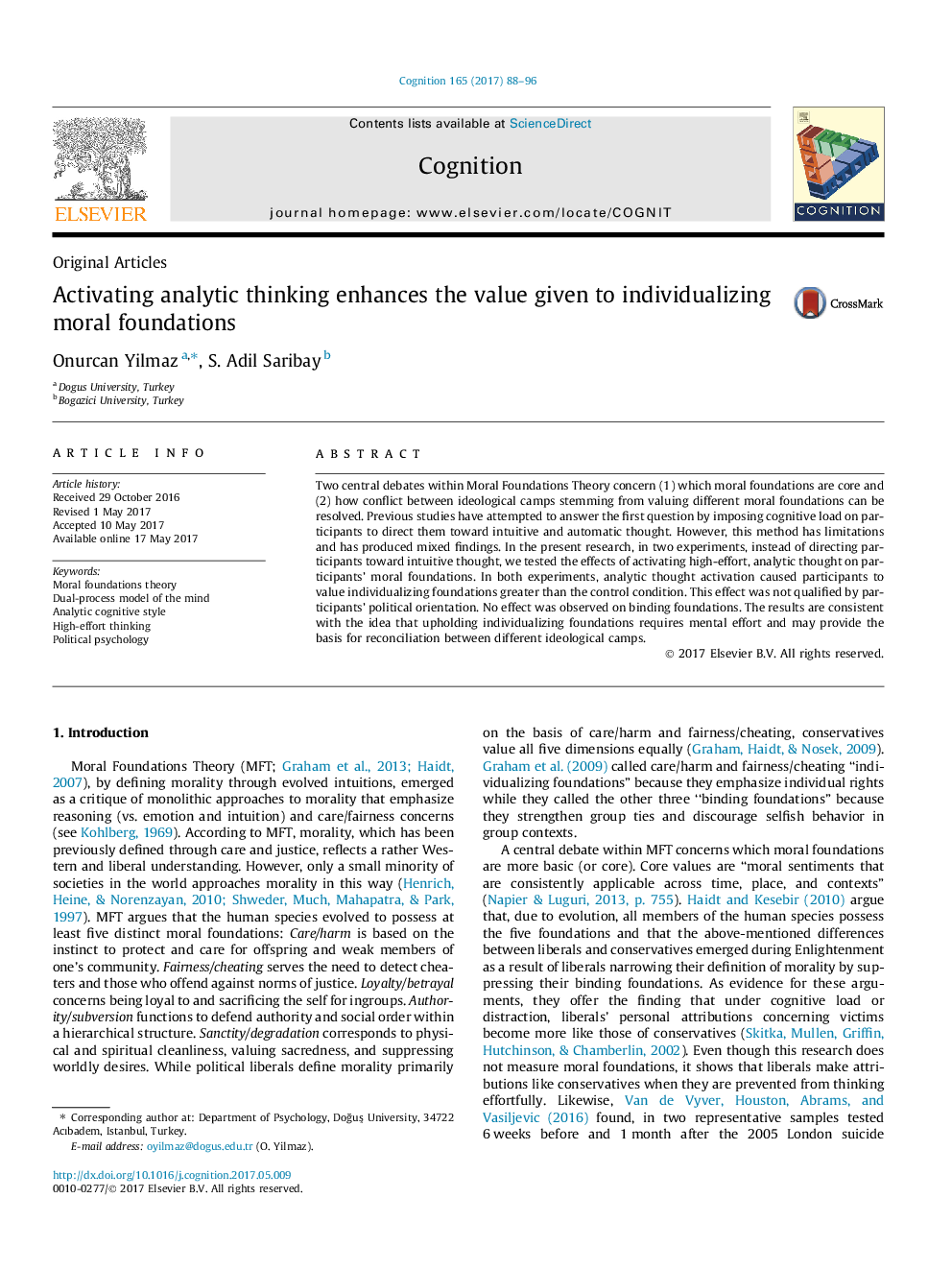| Article ID | Journal | Published Year | Pages | File Type |
|---|---|---|---|---|
| 5041506 | Cognition | 2017 | 9 Pages |
Two central debates within Moral Foundations Theory concern (1) which moral foundations are core and (2) how conflict between ideological camps stemming from valuing different moral foundations can be resolved. Previous studies have attempted to answer the first question by imposing cognitive load on participants to direct them toward intuitive and automatic thought. However, this method has limitations and has produced mixed findings. In the present research, in two experiments, instead of directing participants toward intuitive thought, we tested the effects of activating high-effort, analytic thought on participants' moral foundations. In both experiments, analytic thought activation caused participants to value individualizing foundations greater than the control condition. This effect was not qualified by participants' political orientation. No effect was observed on binding foundations. The results are consistent with the idea that upholding individualizing foundations requires mental effort and may provide the basis for reconciliation between different ideological camps.
